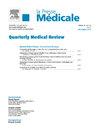Health technology assessment in Europe: A comparison of organizations and introduction to the European regulation
IF 3.4
3区 医学
Q1 MEDICINE, GENERAL & INTERNAL
引用次数: 0
Abstract
Health Technology Assessment (HTA) is a multidisciplinary process that evaluates the medical, social, economic, legal, and ethical aspects of health technologies to determine their value throughout their lifecycle. With rising healthcare costs in Europe, robust HTA processes are crucial for making informed decisions that promote an equitable and efficient health system. HTA practices date back to 1967 in France and have expanded across Europe, with most countries adopting HTA models to guide pricing and reimbursement decisions. An analysis of European Health Technology Assessment bodies (HTAb) was conducted through an online survey to showcase the diversity of HTA systems while highlighting their shared goals. The survey, sent to 33 HTAb from July 8 to August 25, 2024, included 11 multiple-choice questions about their organization and processes, allowing for optional free text responses. Data collected were self-reported and analysed using descriptive statistics, with minimal verification of responses. Despite some differences in remit and scope, European HTAb remain steadfast in their resolve to collaborate. The European Commission and EU member states have fostered collaboration among HTA bodies through initiatives like EUnetHTA, culminating in the adoption of the HTA Regulation (EU) 2021/2282, which will be implemented starting January 12, 2025 with the production on joint clinical assessment and joint scientific consultation for some medicinal products and high-risk medical devices. The HTAR offers numerous opportunities for collaboration. Joint productions will foster a culture of mutual learning, allowing countries to benefit from shared expertise and data while ensuring the rigorous and transparent assessment of new health technologies. Moreover, a more unified approach to HTA could accelerate the adoption of new and effective technologies at the continental level, ultimately improving patient outcomes across Europe.
欧洲卫生技术评估:组织比较和欧洲法规介绍
卫生技术评估(HTA)是一个多学科的过程,评估卫生技术的医学、社会、经济、法律和伦理方面,以确定其在整个生命周期中的价值。随着欧洲医疗成本的上升,健全的卫生评估程序对于做出明智的决策、促进公平和高效的卫生系统至关重要。HTA的实践可以追溯到1967年的法国,并已扩展到整个欧洲,大多数国家采用HTA模型来指导定价和报销决策。通过一项在线调查对欧洲卫生技术评估机构(HTAb)进行了分析,以展示HTA系统的多样性,同时突出其共同目标。该调查于2024年7月8日至8月25日发送给33 HTAb,包括11个关于其组织和流程的多项选择题,允许选择免费文本回答。收集的数据是自我报告的,并使用描述性统计进行分析,对回答进行了最少的验证。尽管在职权范围和范围上存在一些差异,但欧洲卫生组织仍然坚定地决心进行合作。欧盟委员会和欧盟成员国通过EUnetHTA等倡议促进了HTA机构之间的合作,最终通过了HTA法规(EU) 2021/2282,该法规将于2025年1月12日开始实施,对一些医药产品和高风险医疗器械进行联合临床评估和联合科学咨询。HTAR提供了许多合作机会。联合制作将促进一种相互学习的文化,使各国能够从共享的专门知识和数据中受益,同时确保对新的卫生技术进行严格和透明的评估。此外,更统一的HTA方法可以加速在欧洲大陆层面采用新的和有效的技术,最终改善整个欧洲患者的治疗效果。
本文章由计算机程序翻译,如有差异,请以英文原文为准。
求助全文
约1分钟内获得全文
求助全文
来源期刊

Presse Medicale
医学-医学:内科
自引率
3.70%
发文量
40
审稿时长
43 days
期刊介绍:
Seule revue médicale "généraliste" de haut niveau, La Presse Médicale est l''équivalent francophone des grandes revues anglosaxonnes de publication et de formation continue.
A raison d''un numéro par mois, La Presse Médicale vous offre une double approche éditoriale :
- des publications originales (articles originaux, revues systématiques, cas cliniques) soumises à double expertise, portant sur les avancées médicales les plus récentes ;
- une partie orientée vers la FMC, vous propose une mise à jour permanente et de haut niveau de vos connaissances, sous forme de dossiers thématiques et de mises au point dans les principales spécialités médicales, pour vous aider à optimiser votre formation.
 求助内容:
求助内容: 应助结果提醒方式:
应助结果提醒方式:


